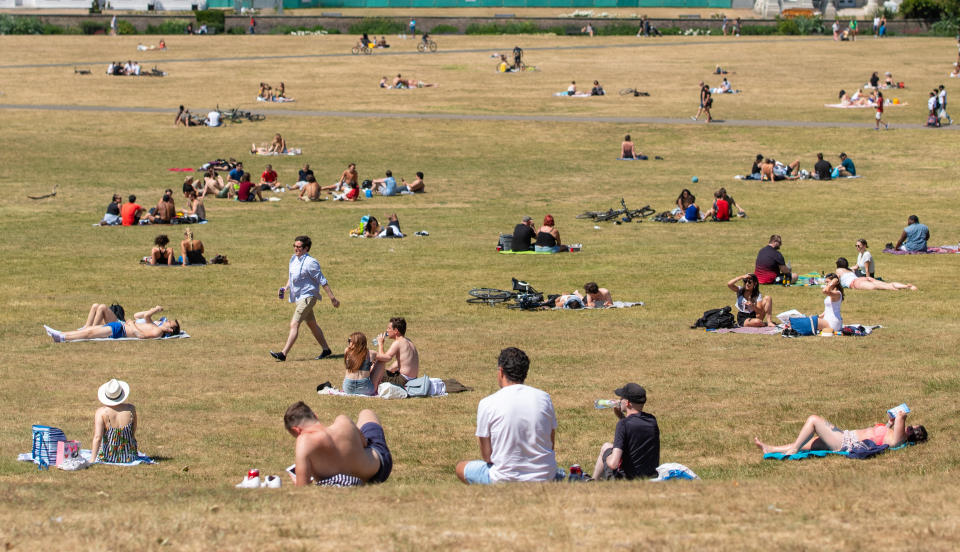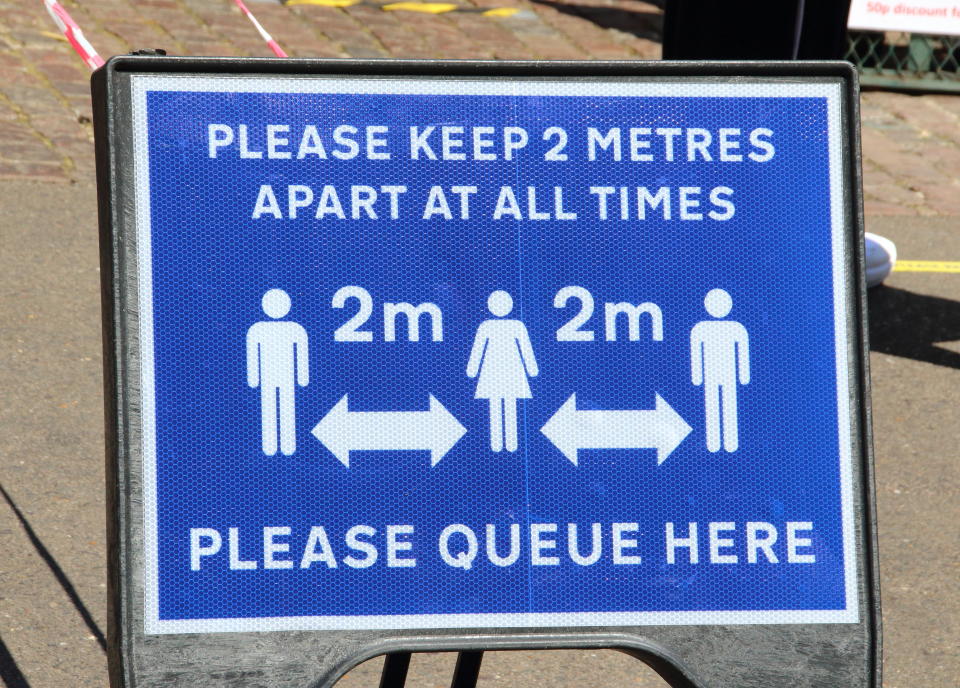Coronavirus: What the law says you can and can't do under new lockdown rules
A range of new coronavirus lockdown rules came into force in England on Monday.
Last week, prime minister Boris Johnson announced that people would be able to meet up in groups of six from the beginning of June.
Amendments to the government’s coronavirus bill were introduced in Parliament on Monday morning amid a barrage of criticism.
Public health experts have warned that the government is lifting the lockdown in England too soon, while a legal commentator said the new laws are “barely comprehensible”.

One of the new amendments bans people from having sex in their own home with someone from another household.
But what are people in England allowed to do under the easing of lockdown measures, according to the government guidelines?
Meeting up with people
The most well documented change is groups of up to six people from separate households can now meet in outside spaces.
This means that you can meet limited numbers of family and friends in gardens and parks, but you must continue to follow social distancing rules.
You can play sports with the people that you meet, but only if it is possible to keep a two-metre space between you, such as tennis or football.

Having sex
Under the new legislation, having sex in your own home with someone from another household is now illegal.
This because of new legal wording which bans two people from separate households from meeting in a private space.

The amendment to The Health Protection (Coronavirus, Restrictions) Bill states: “No person may participate in a gathering which takes place in a public or private place indoors, and consists of two or more persons.”
The bill reads: “No person may, without reasonable excuse, stay overnight at any place other than the place where they are living.”
Groups with a ‘reasonable excuse’
However, some groups are allowed to meet in a private place indoors.
Those deemed to have a “reasonable excuse” and who can participate in a meeting indoors are; those attending a funeral; an elite athlete or coach of an elite athlete; someone facilitating a house move; those meeting for necessary work purposes; care providers for a vulnerable person; someone providing emergency assistance or those providing childcare.
This differs from the previous legislation which prohibited people from leaving their home at all without a reasonable excuse.
Back to school
Primary schools can begin to open for pupils in Reception, Year 1 and Year 6 from Monday.
Vulnerable children and children of key workers can still go to class, and teaching can start for older pupils in Year 10 and Year 12 in two weeks’ time.

Going shopping and day-tripping
Most non-essential shops will remain closed on Monday, but car showrooms and outdoor markets will be allowed to reopen.
Other non-essential shops can start to trade again from 15 June.
Visits to outdoor spaces are allowed as long as you do not stay overnight. Hotels remain closed and people must maintain social distancing while on day trips.
Shielding
From Monday, the two million people who have been shielding in England can now leave the house to spend time with people outdoors.
Those considered extremely vulnerable will be able to go outside with members of their household, while continuing to follow social distancing guidelines.
And those who live alone can meet outside with one other person from another household, also adhering to social distancing guidelines.
Watch the video below
Breaking the rules
Anyone found guilty of breaching the lockdown restrictions will be fined £100, reduced to £50 if paid within 14 days.
Fines will double up to £3,200 for every subsequent rule breach.
The rules elsewhere in the UK
In Wales, people from two households will be able to meet outdoors, as long as they do not travel more than five miles and observe social distancing.
People who have been shielding will also be able to exercise outdoors and meet people from another household, but must not go into another house or share food.
In Scotland, people have been allowed to meet in groups of eight since Friday, in outdoors in parks or gardens, but these gatherings can only include members of two separate households.
In Northern Ireland, some rules will be relaxed next Monday, 8 June.
Shops such as car showrooms can open and outdoor weddings will be able to take place, but limited to fewer than 10 people, while outdoor sport facilities will be allowed to reopen.
Coronavirus: what happened today
Click here to sign up to the latest news, advice and information with our daily Catch-up newsletter
Read more about COVID-19
How to get a coronavirus test if you have symptoms
How easing of lockdown rules affects you
In pictures: How UK school classrooms could look in new normal
How public transport could look after lockdown
How our public spaces will change in the future
Help and advice
Read the full list of official FAQs here
10 tips from the NHS to help deal with anxiety
What to do if you think you have symptoms
How to get help if you've been furloughed




